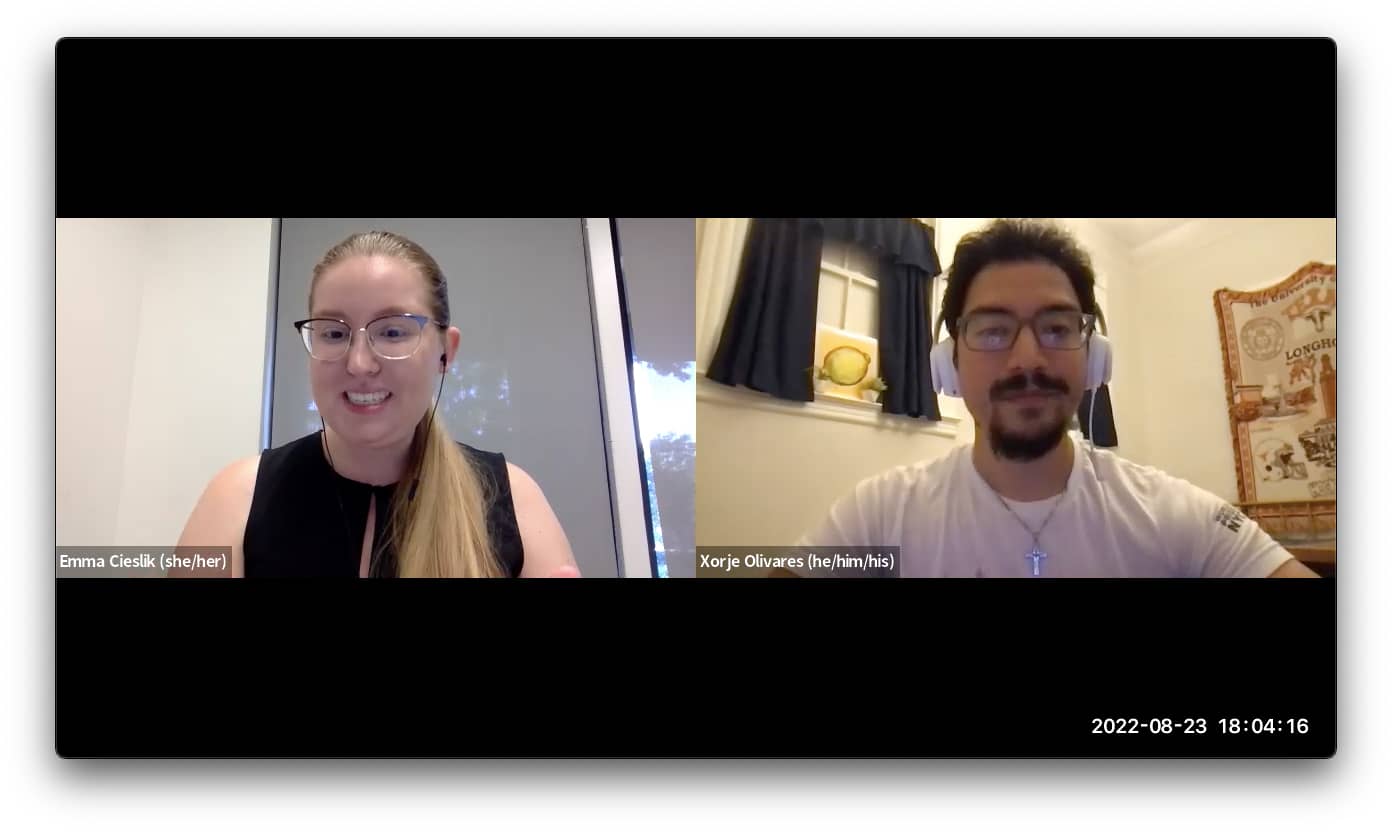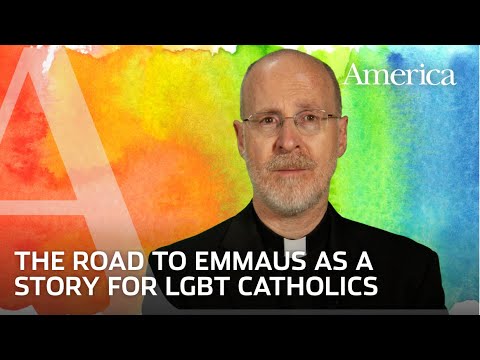In August, Emma Cieslik, a master’s degree candidate at George Washington University in Washington, D.C., conducted the first interview for “Queer and Catholic: A CLGS Oral History Project.” The project was preceded by months of planning, research and preparation. This is the story of how the project began and how you can contribute.
This past Spring, Cieslik reached out to Bernard “Bernie” Schlager, executive director of the Center for LGBTQ and Gender Studies in Religion (C.L.G.S.) at the Pacific School of Religion, in Berkeley, Calif., about starting an oral history project focused solely on documenting LGBTQ Catholic experience. While much research has been conducted on queer religious identity and queer Catholic identity, most research focuses on documenting LGBTQ and ally stories to illustrate geographic patterns, localized events or historic moments, rather than life-long views and first-person storytelling.
Schlager is preparing the launch of the C.L.G.S. Catholic Roundtable, which will consist of leaders, activists, scholars, artists and educators dedicated to creating relationships and coalitions affirming “the dignity and human worth of LGBTQ Catholics and our allies.”
As someone with over three years of experience working to conduct and archive oral history interviews, Cieslik saw this oral history project as an extension of the Roundtable’s work because it seeks to document the queer present and future, both inside and outside the church.
The Queer and Catholic Oral History Project is one of the first centralized oral history repositories dedicated solely to the queer Catholic experience. This oral history project therefore operates under the active assumption that queer Catholic experience must be documented, both as a form of activism and to impose accountability. The archive aims to show that queer Catholics have always existed and contributed to religious communities for years. We must also recognize and record the harm that the Catholic Church has wrought on LGBTQ people.
The Queer and Catholic Oral History Project is one of the first centralized oral history repositories dedicated solely to the queer Catholic experience.
This project was begun with the intentional goal of fostering longevity, multiculturalism and intersectionality. Cieslik began the first phase of research with three long-form interviews this past summer; these interviews are now accessible here.
Long-form oral history interviews capture a life from childhood to the present moment, collecting information that will be critical to future researchers, community members and activists. When people are asked about details not traditionally associated with their gender expression or sexual orientation, or even their advocacy (such as their community or family of origin), integral experiences or influences may be revealed and documented.
This was the case during Cieslik’s first interview with the lesbian Catholic writer Eve Tushnet, who shared that she was raised by Unitarian and secular Jewish parents before converting to Roman Catholicism at age 19.
“I think the biggest pattern is everybody’s out there trying on their own to figure out if they have a future [in the church], and that’s a terrifying place to be in,” said Tushnet when asked about commonalities among queer Catholics.
Cieslik and Schlager were also eager to counter the specificity of most oral history projects. While both of Cieslik’s previous oral history projects, the Ball State Honors College Oral History Project and the Muncie LGBTQ+ History Project, are isolated by community and geography, the C.L.G.S. Catholic Roundtable was intentional in broadening the project.
The project interviews people who were raised in Catholic communities “or [who] come from families where Catholicism has a dominant and discernable presence in their lives.” (This includes those raised as culturally Catholic or who come from ethnically Catholic communities.) This broadness also acknowledges the diversity of American Catholicism, in whichever forms it manifests.
An interview with Xorje Olivares, a gay Catholic man of Mexican and Tejano descent, showcases the importance of this approach. As a broadcast journalist and podcast producer, Olivares focuses on his queer, ethnic and religious identity as part of his work on his podcast, “Queer I Am, Lord.”
As he explained, Catholicism affected both his cultural and religious identities, “even if we weren’t like the most devout of Catholics … there was so much sprinkling of that in how we lived out day-to-day, so that was, like, Mexican and Catholic.” His experiences are critical to understanding how ethnic and cultural Catholicism are in active conversation with American gender and sexuality.
Long-form oral history interviews also allowed Cieslik to capture the experiences of LGBTQ individuals who no longer identify as Catholic or as part of the church. The project interviews LGBTQ individuals and allies who have identified as Catholic. But the project acknowledges that the Catholic Church and Catholic communities have caused (and continue to cause) harm to LGBTQ communities, and that some queer individuals have actively left the church because of this trauma.
The project interviews people who were raised in Catholic communities “or [who] come from families where Catholicism has a dominant and discernable presence in their lives.”
These experiences are valid and need to be documented, as a record of how religion is used to harm an individual or community, but also how moments of queer joy and faith persist in Catholic communities.
As Olivares explained: “What makes me feel like a ‘good Catholic’ is … being unafraid to challenge what it means to be Catholic. So that way the church knows how it can do better, and those of us who have struggled in the ways we have don’t have to feel like all of that weight is on us.”
We hope this oral history project will be valuable to Catholics eager to educate themselves about Catholic LGBTQ individuals and their experiences; religious practitioners eager to use evidence of trauma to change the systems that caused it; scholars interested in queer Catholic identities over time; and especially young queer Catholics, like Cieslik, who are looking to understand their place and future in their church.
Interested in collaborating on this project or participating in an interview? You can reach out to the project team at queerandcatholicoralhistory@gmail.com.




0 Comments